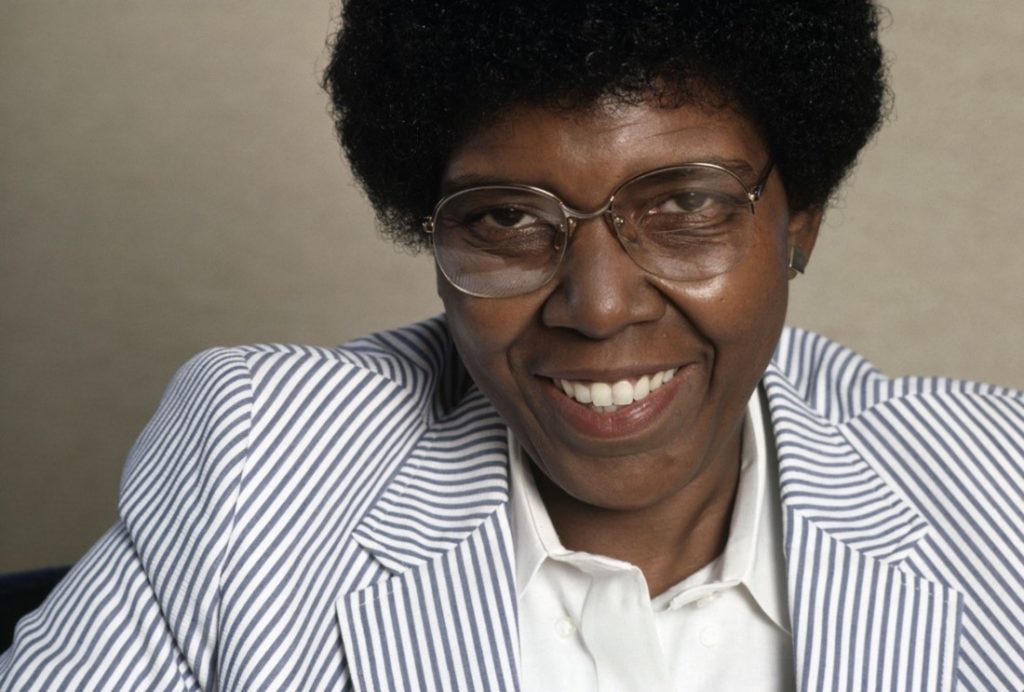Celebrating Black History and Disability History, Part 2
This is a special post written by Charles Warren, Curriculum Developer at Triangle. Charlie is also a member of Triangle’s Racial Equity Task Force. As part of our commitment to the work of our Racial Equity Task Force, we will be sharing more information with you on subjects related to racial equity and disability justice. This post continues our series dedicated to calling attention to the contributions of people with disabilities to American history.
As Black History Month comes to an end, Triangle would like to recognize the contributions made by African Americans in the disability community. We are highlighting people who have had a profound impact on the fight for both racial equity and disability justice – you can find the first blog post in this series here.
Kathy D. Woods – American Fashion Designer

Kathy D. Woods is a major fashion designer for little people. Her company created the first ready-to-wear fashion line for little people, The Kathy D. Woods Collection. The little people community often experiences disparities in access to a variety of clothes that are properly tailored off the rack. This motivated Mrs. Woods, who has a background in education and special education, to start her own business. Her company’s clothes are available online. “Smart, chic and always relevant, the Kathy D. Woods collection embodies modern concepts for the empowered woman.”
Morénike Giwa Onaiwu – Educator, Author, Autism and HIV Advocate

Morénike Giwa Onaiwu is an educator, author, autism and HIV advocate. They are an editor of All the Weight of Our Dreams, which is an anthology of art and writing by autistic people of color published by the Autism Women’s Network. Morénike is a leader and has launched a number of campaigns for human rights, concentrating on HIV and Autism Advocacy. Currently, they are a college professor at Rice University by day, “and a mom/ writer/ activist all the time.” Morénike has been a speaker at the White House, the United Nations Headquarters, and is co-chair of the NIH-funded Women’s HIV Research Collaborative.
Vilissa Thompson – Social Worker, Disability Rights Consultant, and Writer

Vilissa Thompson is a disability rights consultant, social worker, writer, activist, and leader. She is a senior fellow at the Center for American Progress, and one of the preeminent thinkers on issues involving the disability community, race, and gender. She founded the organization Ramp Your Voice!, which creates dialogue on “the issues that matter to her as a Black disabled woman, including intersectionality, racism, politics, and why she unapologetically makes good trouble.” In 2016, she created a national conversation around the hashtag #DisabilityTooWhite, by offering a critique of media coverage, community leadership, and public policy centering on whiteness without consideration for the intersection of racism, sexism, homophobia, and ableism that affects the lives of people with disabilities. Thompson is a member of the National Association of Black Social Workers, whose academic work focuses on looking beyond the medical model of disability.
Barbara Jordan – U.S. Congresswoman

Barbara Jordan (1936 – 1996) was a civil rights activist, lawyer, and politician diagnosed with multiple sclerosis. Famous for her advocacy for voting rights, immigration reform, minimum wage laws, and civil rights, she became active in politics after working for John F. Kennedy’s 1960 presidential campaign. She served in the Texas House of Representatives, the Texas Senate, and served as U.S. Congresswoman from 1972-1978. In 1973, she became the first African American woman from a southern state to serve in Congress. She is remembered for her excellent rhetoric and delivery at the Watergate hearings. Her opening speech during the hearings is considered one of the greatest speeches of 20th century American history. She also gave the keynote at the 1976 Democratic National Convention, being the first Black woman to do so. Her legislative accomplishments include the Community Reinvestment Act, which required banks to make lending services more equitable; the renewal of and expansion of the Voting Rights Act; and the sponsorship or co-sponsorship of more than 300 bills and resolutions. She continued her advocacy through education as a professor at the University of Texas at Austin.
Additional Resources